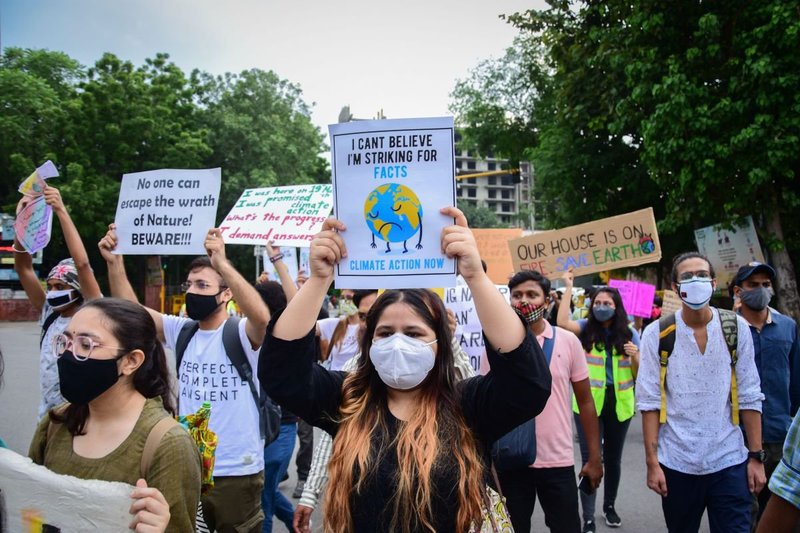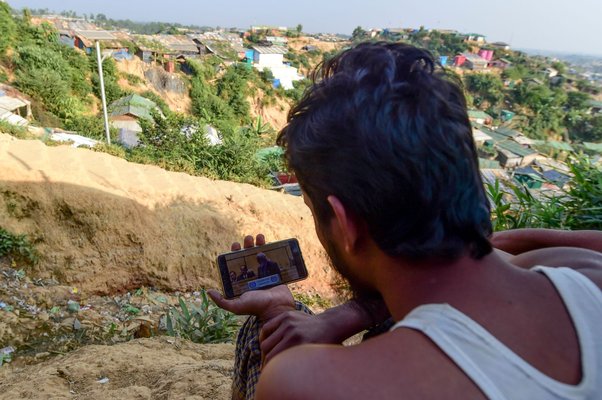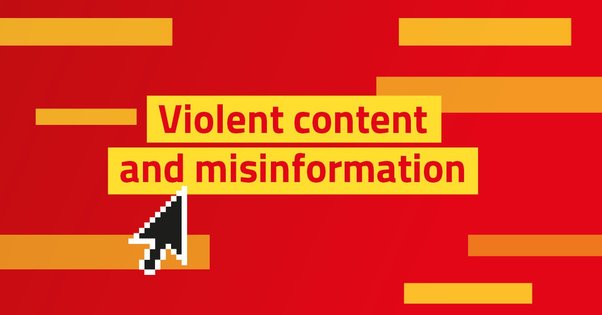At UNESCO’s World Press Freedom Day conference (WPFD) in Santiago last month, the link between the state of the natural world and our digital environment was clear.
“Without facts, you can’t have truth. Without truth, you can’t have trust. Without these three, we have no shared reality, no rule of law, no democracy,” said journalist and Nobel laureate Maria Ressa in her keynote remarks.
“You cannot begin to solve existential problems like climate change if you don’t have facts, if we are not in a shared reality. Imagine – [tech] personalisation means I will serve each one of you a different reality, the one you want.”
Social media’s impact on how we consume news and information online, and the problems this presents for climate action and other democratic processes, have been the focus of Global Witness’s digital threats to democracy campaign for several years.
Our investigations have looked at how social media platforms have allowed content designed to inflame racism, incite violence and impede scientific work on climate change.
We shared this work at WPFD in an event, co-hosted with digital rights organisations Access Now and IPANDETEC, on the online dangers now threatening freedom of expression in Latin America and their relationship to environmental and climate communication globally.
Gagging freedom of expression and climate action in one fell swoop
Journalists, climate scientists, and environmental defenders are instrumental to public understanding of our changing climate: documenting its shifts, sounding the alarm on its effects and clarifying its remedies.
But online harassment and abuse against them can imperil their wellbeing and work.
Yamlek Mojica, a Nicaraguan journalist and communications officer at Access Now, explained how Central America is one of the most hostile regions for the practice of journalism in the Americas.
She shared experiences of doxxing (where individuals’ private information is published without their consent online) and harassment against journalists and activists from third parties and state actors, including around key climate events.
Among the pervasive threats is the use of digital surveillance. Lia Hérnandez, a Panamanian lawyer associated with IPANDETEC, described her work on Panama’s use of spyware against citizens and the harms it brought.
Such tools can violate human rights, such as the right to privacy and freedom of expression.
Paolo Nigro Herrero is a manager of Access Now’s digital security helpline, which provides 24/7 assistance for human rights defenders at risk. He told us that many of the cases that the helpline supports have come from people targeted for investigating corruption, environmental issues and the persecution of human rights defenders.
While these attacks may originate online, they can have real world consequences. The effects of smear campaigns, spyware and deepfakes can range from psychological harm to physical attacks and even murder – as in the case of Ethiopian Professor Meareg Amare Abrha.
You cannot begin to solve existential problems like climate change if you don’t have facts, if we are not in a shared reality
Climate justice activist Disha Ravi, a member of Global Witness’s Advisory Council, spoke to her experience of online harassment and doxxing in her organising for Fridays for Future India.
She described how malicious and fabricated content against climate activists often remains online after it’s been debunked, creating challenges for them in finding employment and continuing their lives.
My remarks included discussion of our research into the effects of online abuse and disinformation on climate communication. We polled 468 climate scientists and found that 39% had experienced online harassment or abuse as a result of their climate work – causing depression for more than a fifth of the harassed scientists.
There’s a possible chilling effect from this online abuse, with four out of 10 affected scientists polled reporting that their experience had made them less likely to post on social media about climate issues.
Similarly, shifts in online climate disinformation – from outright climate denial to distract and delay tactics – aim to muddy people’s thinking and action on tackling the climate crisis.

Parallel perils and the promise in people
Latin America stands out as an epicentre of the dangers faced by those on the frontlines fighting climate breakdown and destructive business practices.
In his opening speech at WPFD, Chilean President Gabriel Boric cited Global Witness’s finding that more than three-quarters of the land and environmental defenders killed worldwide in 2021 and 2022 were in Latin America.
Accountability for these crimes is grounded in access to information and transparency – requiring that journalists and researchers are able to report without fear or threats.
There is lots that platforms can do to help. For a start, they can ban the promotion of climate disinformation in advertising, promote facts over conspiracies in their news feeds, take action against coordinated inauthentic behaviour, and ensure that people cannot make money from spreading climate disinformation online.
Closing her talk, Maria Ressa encouraged us to remember the qualities in people that are not often seen on social media platforms.
“We must have the foresight and the courage to imagine and create the world as it should be – more compassionate, more equal, more sustainable,” she said. “Let’s prove that inspiration ignites the good in each of us.”
Speakers also shared the following resources to promote resilient journalism and online environments:
- The Dart Center’s Online Abuse: A Self-Defence Guide and Dealing with Hate Campaigns: Toolkit for Journalists
- The Dangerous Speech Project’s work on counterspeech and other ways to diminish dangerous speech in ways that don’t bring about other harms.


